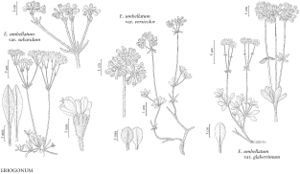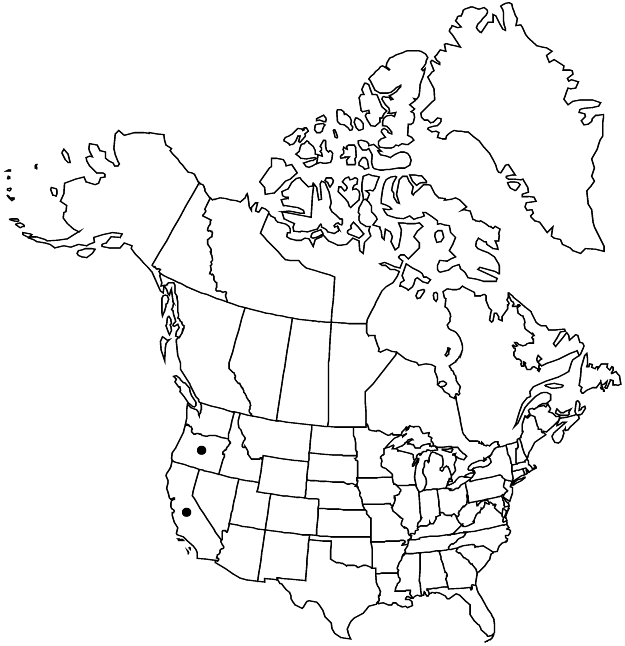Difference between revisions of "Eriogonum umbellatum var. glaberrimum"
Taxon 17: 532. 1968.
FNA>Volume Importer |
FNA>Volume Importer |
||
| Line 8: | Line 8: | ||
}} | }} | ||
|common_names=Warner Mountains sulphur flower | |common_names=Warner Mountains sulphur flower | ||
| − | |basionyms={{Treatment/ID/ | + | |basionyms={{Treatment/ID/Basionym |
|name=Eriogonum glaberrimum | |name=Eriogonum glaberrimum | ||
|authority=Gandoger | |authority=Gandoger | ||
| + | |publication_title=Bull. Soc. Roy. Bot. Belgique | ||
| + | |publication_place=42: 195. 1906 | ||
}} | }} | ||
|synonyms= | |synonyms= | ||
| Line 51: | Line 53: | ||
|publication year=1968 | |publication year=1968 | ||
|special status= | |special status= | ||
| − | |source xml=https://jpend@bitbucket.org/aafc-mbb/fna-data-curation.git/src/ | + | |source xml=https://jpend@bitbucket.org/aafc-mbb/fna-data-curation.git/src/f6b125a955440c0872999024f038d74684f65921/coarse_grained_fna_xml/V5/V5_714.xml |
|subfamily=Polygonaceae subfam. Eriogonoideae | |subfamily=Polygonaceae subfam. Eriogonoideae | ||
|genus=Eriogonum | |genus=Eriogonum | ||
Revision as of 20:09, 24 September 2019
Herbs, compact mats, 1–2.5(–3) × 3–8 dm. Aerial flowering stems erect, 1–2 dm, glabrous, without one or more leaflike bracts ca. midlength. Leaves in loose rosettes; blade narrowly elliptic to elliptic, 1–2 × 0.3–1 cm, glabrous and green on both surfaces, margins plane. Inflorescences umbellate; branches 3–8 cm, glabrous, with a whorl of bracts ca. midlength; involucral tubes 4–5 mm, lobes 1–3.5(–4) mm. Flowers 4–7 mm; perianth cream or whitish.
Phenology: Flowering Jul–Sep.
Habitat: Sandy to gravelly slopes, sagebrush communities, aspen and montane conifer woodlands
Elevation: 1600-2300 m
Discussion
Variety glaberrimum is localized and known with certainty from only five locations in the Warner Mountains of Lake County, Oregon, and Modoc County, California. A collection supposedly gathered somewhere in Klamath County, Oregon (Austin & Bruce 1758, DS) in 1897 is discounted. This expression of the species is worthy of introduction into cultivation.
Selected References
None.

